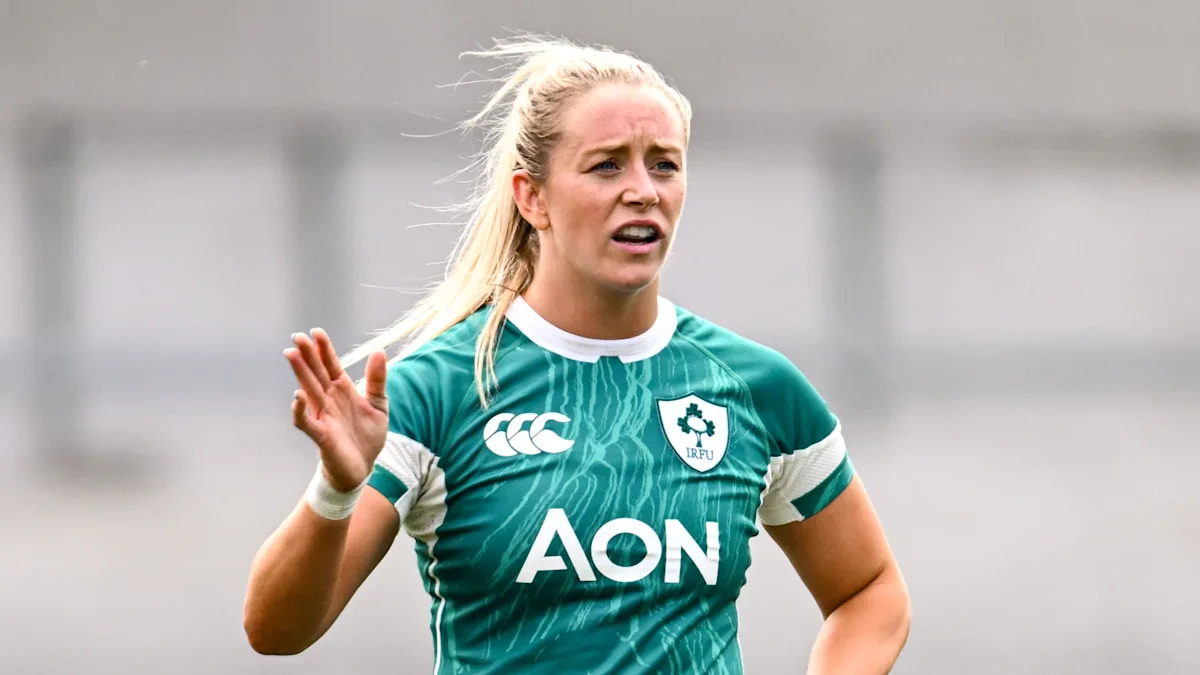Stacey Flood, Ireland’s full-back, has voiced a significant sentiment as her team prepares for the Women’s Rugby World Cup in England — that increased interest in women’s rugby has the potential to “change the game.” The upcoming tournament, set to kick off on August 24 against Japan at Franklin’s Gardens in Northampton, comes at a pivotal time for the sport, as Ireland looks to leverage both home support and international visibility.
The backdrop of this year’s World Cup is particularly compelling. Ireland’s absence from the previous tournament in New Zealand in 2021 spurred a dedicated rebuilding phase under head coach Scott Bemand, who took the reins in July 2023. This new direction has already shown promise, with the team recording improved results, highlighting their potential to compete on the world stage.
### Growing Popularity and Its Implications
Flood’s assertion about the importance of attention on women’s rugby highlights a broader trend: as viewership grows, it positively impacts the sport’s development. “I feel like having eyes on women’s rugby and our team is never going to be a bad thing,” Flood stated. This reflects a growing acknowledgment within the rugby community that increased visibility directly correlates with the sport’s growth.
Support from home, according to Flood, is crucial. “We want the Irish people behind us, we want to have the support of everyone.” This grassroots enthusiasm can serve as a formidable advantage, lending players the confidence and motivation that often distinguish competitive success in high-stakes environments like the World Cup.
### The Tournament Landscape
Ireland’s journey in Pool C will pitch them against formidable opponents, including Spain and New Zealand, in addition to Japan. While Flood speaks to the skills and tenacity of the Japanese team, noting their remarkable “jackal threats,” her focus is clearly on emphasizing Ireland’s own strengths. The balancing act of respecting the opposition while also committing to their unique style is a crucial strategy that Ireland must adopt to advance in the tournament.
Focusing on internal capabilities rather than becoming overly preoccupied with the opposition is a well-recognized approach in competitive sports. “It’s about bringing it back to our squad and what our strengths are,” Flood emphasized. This mindset can be especially potent; by fostering self-belief and teamwork, Ireland could harness their collective energies to outmaneuver opponents in crucial moments.
### The Impact of Increased Support
Flood’s belief that this World Cup can serve as a “major pedestal for women’s rugby” is closely aligned with the narratives circulating in sports media. Increased visibility might not only elevate the profile of women’s rugby but also invigorate future generations of players. It can catalyze sponsorship opportunities, improve funding for grassroots programs, and further invest in the development of women’s rugby in Ireland and beyond.
The growth of women’s sports, particularly in rugby, has been marked by increased attention from broadcasters, sponsors, and fans alike. Major tournaments like the Women’s Rugby World Cup signify a stepping stone towards parity with men’s sports, but they also carry with them the responsibility to shape future pathways for aspiring female athletes. Flood’s insights envision a future where women’s rugby enters the public consciousness, creating a more robust culture around the sport.
### Conclusion
Stacey Flood’s remarks encapsulate the evolving dynamics of women’s rugby. As Ireland gears up for their World Cup campaign against Japan and other teams, the associated excitement and optimism present a unique opportunity. By rallying home support and focusing on their strengths, Ireland could not only succeed in this tournament but also contribute to a lasting change in the landscape of women’s rugby.
This World Cup is not just about goals and victories; it’s about changing perceptions, increasing support, and raising the profile of women’s sports. Flood’s predictions suggest that this tournament is destined to be pivotal. The cumulative effect of recognition, support, and talent could redefine what it means to participate in rugby for generations to come, potentially changing the game as we know it. The tournament is not merely a showcase of talent but incarnates the very essence of growth and recognition that women’s rugby so richly deserves.
Source link









